
醫療體系
從事醫療事業,促進全民健康
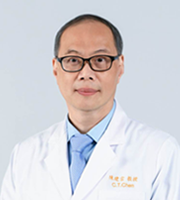
Chien-Tzung, Chen Superintendent
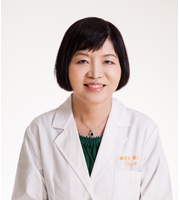
Chyong-Huey, Lai Vice Superintendent
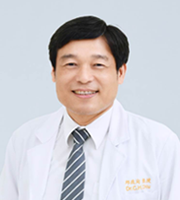
Cheng-Hsun, Chou Vice Superintendent
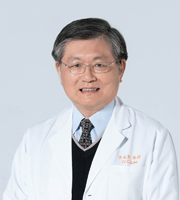
Wei-Chen, Lee Vice Superintendent
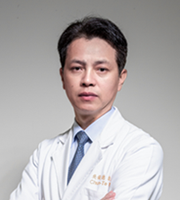
Chun-Te, Wu Vice Superintendent
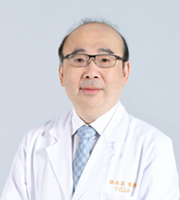
Yung-Chang, Lin Vice Superintendent
院區簡介
1. Mission and Philosophy
In the early 1970s, healthcare systems in Taiwan were undergoing a crisis. Sick and injured people faced numerous obstacles in receiving adequate medical help. In addition, the Medical schools and colleges were severely lacking in resources and training facilities prompting many would-be doctors to go abroad for further training, many of which would not return. This resulted in an outflow of national talent and further depletion of adequate personnel to improve the healthcare system. Prompted by a personal tragic experience involving the medical treatment of his own father, and driven by a sense of mission to give back to society, Mr Wang Yung-ching of the Formosa Plastics Group founded the Chang Gung Memorial Hospital Group in 1973.
Recognizing the importance of education, cutting edge research and cultivation of local talent, the Chang Gung College of Nursing (later renamed Chang Gung Institute of Technology) and Chang Gung Medical College (later renamed Chang Gung University) were founded in 1987 and 1988 respectively. The aim was to foster a closer integration between the different allied and non-allied professions of healthcare which would allow Chang Gung Memorial Hospitals to be a world-class health facility. Utilizing strategies that include the establishments of a comprehensive medical school curriculum; basic science research and raising nursing standards; CGMH sets its journey of becoming a centre of excellence in teaching, service and research.
2. Creating a Culture of Innovative Health care in Taiwan
Pioneering Changes in Health Care Reform
“Serving the interests of patients first” and ensuring their well-being remain the central philosophy of CGMH. This has been a guiding principle for the development of each stage of different departments, allowing the establishment of a healthcare facility that is not only capable of treating a large volume of patients annually, but also not compromise the quality of care delivered to every single patient. Such a system requires not just the care and compassion provided by healthcare professionals, but also a management strategy that continuously upgrades itself to become more efficient and culturally-relevant to meet the needs of the patients.
Maximizing resources to serve the community
CGMH is an established leader in the field of healthcare management; pioneering many concepts of hospital administration and improved efficiency to meet the needs of a large annual turnover of patients. Despite a limited budget as imposed by the National Health Insurance on all hospitals in Taiwan, CGMH continues to see and treat all patients regardless of their financial background; in many cases absorbing the complete treatment and insurance costs. “Serving the interests of patients first” remains the most important guiding force in management planning, and for this reason, CGMH has also invested heavily in streamlining the operational computer system in order to maximize available resources, in the process channeling more funds for patient treatment. In a similar way, this patient-oriented approach has provided the rationale behind the reason to build the nation’s first Cancer Centre to handle the growing problem with cancer diagnosis and management. To date, this Centre sees and treats the highest number of patients from all parts of Taiwan, and abroad.
Active Recruitment of Local and Foreign Medical Talent
Attracting the best physicians and surgeons is vital to CGMH’s objective of becoming a world-class health facility. Despite facing a national shortage of doctors during its early establishment, CGMH began an active campaign to recruit the best available local doctors, as well as sending out senior staff who personally invited the leading experts of different specialties from other countries to join the growing establishment. Such a movement resulted in some of the best local and foreign doctors working in close partnerships with each other within the CGMH setup, significantly changing the standard of patient care in Taiwan.
The Use of Advanced Medical Technologies and Innovative Research
Care of the sick patient involves a holistic and individualized approach. Without compromising the important values of diligence and sincerity which remain at the heart of patient care, CGMH believes in utilizing the latest technologies to provide the best treatment available. For this reason, the hospital has recently purchased the Da Vinci Surgical Robotic System in 2006, the Novalis shaped beam surgery which enable image-guided radiation therapy with surgical precision, and also the intensity-modulated arc therapy linear accelerator (Linac Rapid-Arc) in 2007-2008. Plans are underway for the building of the nation’s first proton treatment center. Costing nearly 6 billion NTD, the centre will be able to provide cutting-edge radiotherapy treatment services for cancer patients.
The role of research occupies a significant position in the present and future vision of CGMH. To date, significant contributions have originated from both clinical and basic science research in the various departments at CGMH, achieving many breakthroughs in patient care worldwide. Targeting common diseases, the research groups focus on integrative cooperation between different fields and also place strong emphases on translation of basic science studies to clinical application. Seven core research facilities have been set up for this purpose: the center for genomics research; the center for microscopy; the clinical proteomics center; the genetic sequencing center; the clinical statistics center; the tissue bank; and the drug genomic laboratory. Working closely with the curriculum of the School of Biomedical Sciences, leading clinicians and researchers in various fields as well as collaborating with their ongoing research, the seven departments presently focus on various important clinical fields, including neuroscience, nephrology, liver cancer, gynecologic cancer, molecular imaging, molecular infectious diseases, and craniofacial center.
3. The Present Chang Gung Memorial Hospital, Linkou Branch
The work of Chang Gung Memorial Hospital (Linkou Branch) is organized into several buildings, including a Medical Building, Rehabilitative Building, Pathological Building, Research Building, and Education Building. The Hospital presently serves the largest number of beds in the nation. Employing over 9,000 employees, the hospital sees an annual average of 4 million outpatients, two hundred thousand patients in the emergency department, and handles close to one hundred thousand patients that have sought surgery or hospitalization.
4. Creating a Comprehensive and Integrated Health Care System
The Chang Gung network of hospitals delivers comprehensive, holistic healthcare. From maternity and infant care, through pediatrics and adult medicine, to specialist focuses on elderly care – we are an all-encompassing healthcare safety net for the nation.
5. Conclusion
Medicine remains an industry focused on the individual. Upholding the legacy of our founder, YC Wang, Chang Gung will continue to focus on patient care above all else. With compassion for those in our care, we will continue to improve and fulfill our social mission.
In the early 1970s, healthcare systems in Taiwan were undergoing a crisis. Sick and injured people faced numerous obstacles in receiving adequate medical help. In addition, the Medical schools and colleges were severely lacking in resources and training facilities prompting many would-be doctors to go abroad for further training, many of which would not return. This resulted in an outflow of national talent and further depletion of adequate personnel to improve the healthcare system. Prompted by a personal tragic experience involving the medical treatment of his own father, and driven by a sense of mission to give back to society, Mr Wang Yung-ching of the Formosa Plastics Group founded the Chang Gung Memorial Hospital Group in 1973.
Recognizing the importance of education, cutting edge research and cultivation of local talent, the Chang Gung College of Nursing (later renamed Chang Gung Institute of Technology) and Chang Gung Medical College (later renamed Chang Gung University) were founded in 1987 and 1988 respectively. The aim was to foster a closer integration between the different allied and non-allied professions of healthcare which would allow Chang Gung Memorial Hospitals to be a world-class health facility. Utilizing strategies that include the establishments of a comprehensive medical school curriculum; basic science research and raising nursing standards; CGMH sets its journey of becoming a centre of excellence in teaching, service and research.
2. Creating a Culture of Innovative Health care in Taiwan
Pioneering Changes in Health Care Reform
“Serving the interests of patients first” and ensuring their well-being remain the central philosophy of CGMH. This has been a guiding principle for the development of each stage of different departments, allowing the establishment of a healthcare facility that is not only capable of treating a large volume of patients annually, but also not compromise the quality of care delivered to every single patient. Such a system requires not just the care and compassion provided by healthcare professionals, but also a management strategy that continuously upgrades itself to become more efficient and culturally-relevant to meet the needs of the patients.
Maximizing resources to serve the community
CGMH is an established leader in the field of healthcare management; pioneering many concepts of hospital administration and improved efficiency to meet the needs of a large annual turnover of patients. Despite a limited budget as imposed by the National Health Insurance on all hospitals in Taiwan, CGMH continues to see and treat all patients regardless of their financial background; in many cases absorbing the complete treatment and insurance costs. “Serving the interests of patients first” remains the most important guiding force in management planning, and for this reason, CGMH has also invested heavily in streamlining the operational computer system in order to maximize available resources, in the process channeling more funds for patient treatment. In a similar way, this patient-oriented approach has provided the rationale behind the reason to build the nation’s first Cancer Centre to handle the growing problem with cancer diagnosis and management. To date, this Centre sees and treats the highest number of patients from all parts of Taiwan, and abroad.
Active Recruitment of Local and Foreign Medical Talent
Attracting the best physicians and surgeons is vital to CGMH’s objective of becoming a world-class health facility. Despite facing a national shortage of doctors during its early establishment, CGMH began an active campaign to recruit the best available local doctors, as well as sending out senior staff who personally invited the leading experts of different specialties from other countries to join the growing establishment. Such a movement resulted in some of the best local and foreign doctors working in close partnerships with each other within the CGMH setup, significantly changing the standard of patient care in Taiwan.
The Use of Advanced Medical Technologies and Innovative Research
Care of the sick patient involves a holistic and individualized approach. Without compromising the important values of diligence and sincerity which remain at the heart of patient care, CGMH believes in utilizing the latest technologies to provide the best treatment available. For this reason, the hospital has recently purchased the Da Vinci Surgical Robotic System in 2006, the Novalis shaped beam surgery which enable image-guided radiation therapy with surgical precision, and also the intensity-modulated arc therapy linear accelerator (Linac Rapid-Arc) in 2007-2008. Plans are underway for the building of the nation’s first proton treatment center. Costing nearly 6 billion NTD, the centre will be able to provide cutting-edge radiotherapy treatment services for cancer patients.
The role of research occupies a significant position in the present and future vision of CGMH. To date, significant contributions have originated from both clinical and basic science research in the various departments at CGMH, achieving many breakthroughs in patient care worldwide. Targeting common diseases, the research groups focus on integrative cooperation between different fields and also place strong emphases on translation of basic science studies to clinical application. Seven core research facilities have been set up for this purpose: the center for genomics research; the center for microscopy; the clinical proteomics center; the genetic sequencing center; the clinical statistics center; the tissue bank; and the drug genomic laboratory. Working closely with the curriculum of the School of Biomedical Sciences, leading clinicians and researchers in various fields as well as collaborating with their ongoing research, the seven departments presently focus on various important clinical fields, including neuroscience, nephrology, liver cancer, gynecologic cancer, molecular imaging, molecular infectious diseases, and craniofacial center.
3. The Present Chang Gung Memorial Hospital, Linkou Branch
The work of Chang Gung Memorial Hospital (Linkou Branch) is organized into several buildings, including a Medical Building, Rehabilitative Building, Pathological Building, Research Building, and Education Building. The Hospital presently serves the largest number of beds in the nation. Employing over 9,000 employees, the hospital sees an annual average of 4 million outpatients, two hundred thousand patients in the emergency department, and handles close to one hundred thousand patients that have sought surgery or hospitalization.
4. Creating a Comprehensive and Integrated Health Care System
The Chang Gung network of hospitals delivers comprehensive, holistic healthcare. From maternity and infant care, through pediatrics and adult medicine, to specialist focuses on elderly care – we are an all-encompassing healthcare safety net for the nation.
5. Conclusion
Medicine remains an industry focused on the individual. Upholding the legacy of our founder, YC Wang, Chang Gung will continue to focus on patient care above all else. With compassion for those in our care, we will continue to improve and fulfill our social mission.

聯絡資訊
TEL +886-3-3281200
FAX +886-3-3285060
聯絡地址 : No.5, Fuxing St., Guishan Dist., Taoyuan City 333, Taiwan (R.O.C.)
規模
- 病床總病床數 : 3452
- 醫生人數 : 1769
- 醫事人員數 : 6710